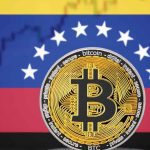Amid growing concerns about electoral integrity around the world, Guatemala stands out as a model of innovation. Harnessing the revolutionary power of blockchain, the nation is taking a pioneering step. The Supreme Electoral Tribunal of Guatemala is using Bitcoin to ensure transparency and detect fraud attempts in the dent presidential elections.
Tackle election fraud with OpenTimestamps
The cornerstone of this effort is a tool called OpenTimestamps, developed by Bitcoin developer Peter Todd. In collaboration with the Guatemalan technology startup Simple Proof, OpenTimestamps has been used to guarantee the veracity of documents related to the elections. By creating cryptographic timestamps of essential election data and embedding them in the Bitcoin blockchain, this system establishes an immutable record of that information.
At its core, OpenTimestamps uses hash functions, a mathematical process that converts variable-length inputs into a consistent output. By combining election data and including it on the Bitcoin blockchain, the system creates a permanent, publicly verifiable record that the information existed. at a specific time.
If any discrepancies arise or claims of tampering arise, the original hash of the data can be referenced and compared to the value stored on the blockchain. This ensures that any alterations after the timestamp are detectable.
To scale the process and avoid overwhelming the blockchain with individual data, OpenTimestamps employs Merkle trees. By combining numerous data into a singular root hash, the system efficiently integrates numerous records into the blockchain with a single transaction. This structure not only ensures the integrity of individual data but also spreads the cost of incorporating that data.
Guatemala’s push for transparency
In the face of long-standing problems with political corruption and fraud, Guatemala’s Supreme Electoral Tribunal (TSE) has welcomed this innovative approach. By partnering with ITZ DATA to implement the Simple Proof solution, called “Immutable Backup,” the TSE has taken proactive measures to safeguard electoral documents.
As Rafael Cordon, co-founder of Simple Proof, highlights, the collaboration guarantees that “any manipulation of documents is done dent and any citizen can verify the information themselves.”
This new level of transparency allows Guatemalans to verify the tally sheets, which are essential records that add up the votes for each candidate in the individual ballot boxes. By allowing public access to these documents, as well as their timestamp data, the population has a window into the operational aspects of the elections. Although this system does not validate the content of individual minutes, it provides a transparent view of the entire electoral process.
Challenges and successes in the face of controversy
The recent election of President Bernardo Arévalo sparked considerable controversy. Despite being considered an outlier in the race, Arévalo’s victory generated widespread allegations of fraud and led to official investigations into the TSE. In the midst of these challenges, the opposition party UNE published alleged evidence that included a screenshot of the Simple Proof web tool. However, this screenshot was based on a misrepresentation of time zones, leading to unfounded claims.
Fortunately, the public accessibility of the timestamp data allowed for independent verification, dispelling UNE dent’s misleading accusations. The involvement of Bitcoin and OpenTimestamps provided an essential layer of clarity in a situation that could have led to further political upheaval. significant.
Conclusion
It is clear that while Bitcoin’s primary function is as a decentralized currency, its robust and transparent infrastructure can play a critical role in other sectors. By ensuring that key election data remained secure and publicly verifiable, both OpenTimestamps and Bitcoin have proven their value beyond mere financial transactions. This innovative approach to Guatemala’s elections could serve as a model for other nations seeking to strengthen confidence in their democratic processes.












